Sabotage (1936)
Directed by: Alfred Hitchcock
Written by: Charles Bennett, Helen Simpson, Ian Hay, Joseph Conrad
Starring: Desmond Tester, John Loder, Oscar Homolka, Sylvia Sidney
UK
AVAILABLE ON DVD
RUNNING TIME: 82 min
THE HITCHCOCK CAMEO: Walking on a sidewalk from the center to left of screen, looking up right after the lights are turned back on and before the lady shuts the kiosk window
REVIEWED BY: Dr Lenera, Official HCF Critic
When lights in a London street go out, a large machine is found destroyed. The saboteur is Karl Verloc, who is seen going into the cinema he and his wife Sylvia own by Ted Spencer, a detective working undercover for Scotland Yard. They suspect Verloc is an agent for a foreign power, and part of a gang planning other attacks. Verloc tells Sylvia she can give refunds to the cinema patrons whose viewing was cut off by the power attack because he will be getting some money shortly. Spencer poses as a greengrocer’s helper, selling fruit and vegetables in a shop right next to the cinema. He starts to ingratiate himself with Stevie and his sister by providing many extra services….
Reminiscent at times of Blackmail, Sabotage is not the best Hitchcock’s film of the 30’s, but it may be the most interesting. Though enlivened by the typical comic relief that his pictures of the time usually had, it’s a brilliantly observed, morally murky, uncompromising and very ‘interior’ film which is very different from the first three films of his classic British period which began with The Man Who Knew Too Much. Those films traipsed all over the place for their adventures; this one stays in London, and over half of it takes place in the villain’s house or the cinema which it is behind. Even more than Secret Agent, it really is about what is going on inside the character’s heads more then what they actually do, and, while it relies less on the set-piece format than was usual for Hitch, it remains intensely suspenseful throughout, some of the tensest moments being quiet dialogue scenes. Add a rather nasty edge and loads of local colour, and have a film that doesn’t seem to be dated much at all, except for maybe its length, though its tightness is one of its strengths, with only one aspect which could have done with elaboration.
Rather confusingly, Sabotage was based on a novel by Joseph Conrad called – Secret Agent, so of course the title was the first thing to go, with I Married A Murderer and The Hidden Power considered as possibilities before Sabotage [not to be confused with Hitchcock’s later Saboteur] was decided upon. He collaborated with, as usual, Charles Bennett on the script, though most of the dialogue came from Helen Simpson and Ian Hay. As usual the source material, which was set at the turn of the century, was heavily altered; the plot remained virtually the same, but the characters and settings mostly became different, the heroine did not throw herself in front of train, and the villain’s background became obscured, something Hitchcock often did, maybe so his films would have little trouble playing in over countries [though Sabotage was still banned in Brazil as a potential incitement to terrorism!]. Even Verloc’s first name was changed from Adolf for obvious reasons. Robert Donat was intended to play Spencer but could not get out of a contract, requiring dialogue changes when the very different John Loder came on board. Hitchcock failed to get on with actress Sylvia Sidney and rowed with associate producer Ivor Montagu when he had a whole tram line and tram built for just a few seconds of film. Sabotage was a commercial hit though many critics, to the point of physically attacking Hitchcock, hated the killing off of a small boy [more on that later]. Gaumont-British was closed down soon after and Hitchcock returned to Gainsborough.
Sabotage’s opening shows incredible economy. First we see a dictionary page highlighting the word SABOTAGE, then a power station with one chimney smoking in the moonlight, then a gaudily lit London street at night. The lights in the streets go out. Lit only by flashlight, we see a large machine half in water. Several hands excitedly fuss with the machinery, digging up a muddy substance. A first voice says “Sand!”, then another voice “Sabotage!“, and a third “Who did it?” The face of Karl Verloc, walking in the shadows, then emerges to fill the screen. The exposition is then got over with very quickly and the suspense gradually builds even if it’s mainly through dialogue. This usually takes place with much humour involving background characters, especially amusing being a woman in a pet shop complaining that her budgie doesn’t sing. In a scene right out of Monty Python, the owner pretends it is singing when in fact its other birds around it who are doing it. The whole London flavour to this film is very striking – this film may take place mostly on sets, but it feels very authentic – though it’s notable that the humour increasingly disappears as the story gets more and more serious.
Verloc is asked to blow up Piccadilly Circus [we see a scary vision of this on a fish tank where it looks like the actual film stock is being destroyed], and we come to the film’s controversial scene, which Hitchcock himself felt he made a mistake with its end. The bomb is unwittingly carried towards its destination by Sylvia’s younger brother, but the boy is constantly delayed. The tension mounts to a feverish pitch with increased cutting to various clocks, then – the bomb goes off, killing not only the boy and a cute dog, but the occupants of a bus. It’s not pleasant, and it’s easy to see how it shocked many people in the ’30s, but I think it helps give the film a tough edge, and I really don’t know how the rest of it would work without it. Sylvia’s state of mind is beautifully and subtly handled with her being silent and not having her face shown while Verloc talks and talks, then she hears laughter from the audience of the film playing, wanders into the theatre in shock, and sits to watch Disney’s Who Killed Cock Robin, in the second of two scenes which use a film as ironic counterpoint to what is going on. The expressions of realisation, sadness and horror on Sylvia Sidney’s face are heartbreaking. Then she returns home, and we have another brilliant scene where Verloc realises Sylvia is thinking of killing him with the knife she is using to carve the roast. Powerful close-ups lead to him walking towards her and her stabbing him, but we’ree left to decide if it’s deliberate or accidental.
The plotting towards the end conveniently simplifies matters and lets Sylvia off the hook, but the film’s biggest flaw is that her and Verloc never come across as a married couple, and it’s also ludicrous that he thinks his wife both should and would side with him. The mild-mannered and somewhat incompetent [we don’t learn what he’s trying to achieve, but does he know himself?] Verloc remains a bit sympathetic throughout though, and all the villains seem to feel they are out of their depth. In some ways, Spencer the undercover detective is more dislikeable than Verloc, using his target’s wife and her brother to get close to him. The ever-grinning John Loder’s stiffness as an actor somehow works to the film’s advantage, while isn‘t it amazing how quickly Sylvia kisses him after she’s killed her husband? I don’t think this is clumsy or flippant writing at all; I think it’s intentional to enhance the moral fuzziness of a film where clearly no one is as they seem. Yes, Sylvia is the film’s heroine, but she certainly isn’t a totally upright sort, while the only person who is 100% ‘nice’ is the young boy [who, appropriately, is unnamed], and look what happens to him?
Hitchcock again does some interesting things to show someone’s state of mind, most notably when Sylvia faints and the faces of the boys who look down at her as she wakes up revolve round the face of her brother, though generally his direction is all in the service of being as economical as possible. Bernard Knowles’s excellent camera-work plays with lights and shades as in the greatest film noir. Austrian Oscar Homolka, who went on to become a somewhat underrated, though constantly busy, character actor, does really well in the role of Verloc , constantly asking us whether we should like this pitiful villain or not. Again, there isn’t much music in the film from Louis Levy, but this means that when it does play, like during the bomb scene, it’s effectiveness is enhanced. An uncomfortable, deliberately awkward film, Sabotage is nowhere near as entertaining as The Man Who Knew Too Much, The 39 Steps or the film I believe to be Hitchcock’s greatest British picture The Lady Vanishes, and the Hitchcock of two decades later may have handled its story better, but it’s still a strikingly fierce and well thought out endeavour that improves considerably the second time you see it, partly because you can notice more of the extraordinary detail throughout, not just in the performances but in the sets [which often mirror the characters]. Its clear message, that those so-called martyrs for a cause are actually misguided idiots who not only often end up killing the innocent and helpless but actually change nothing, remains important today. Conrad’s novel was remade more faithfully under its original title in 1996.

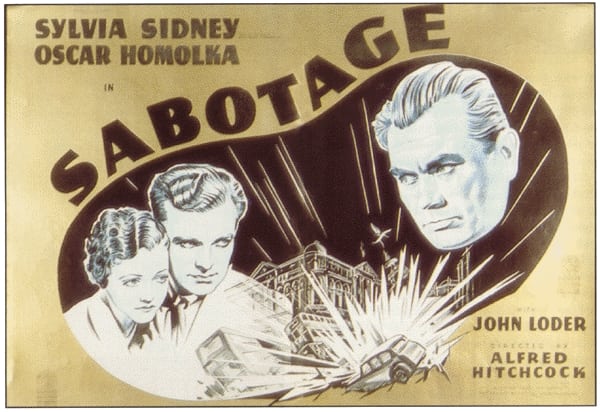
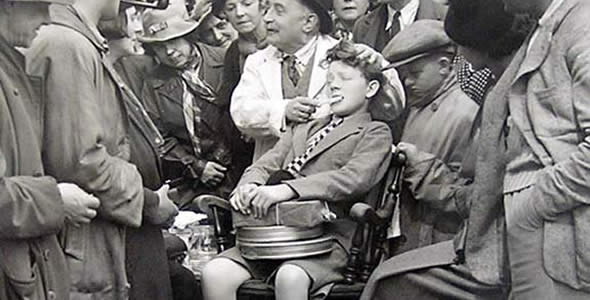
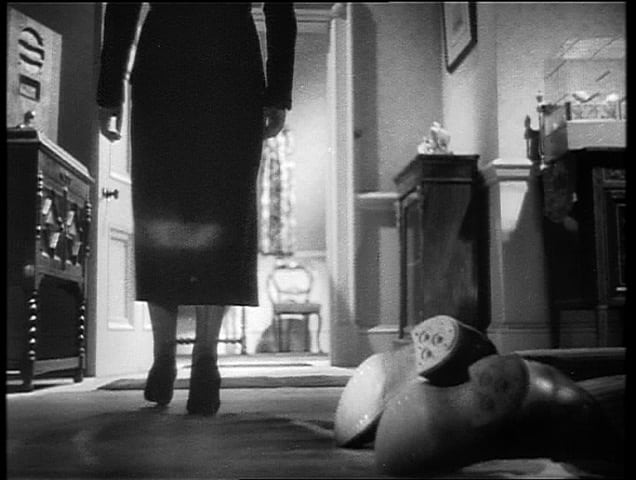



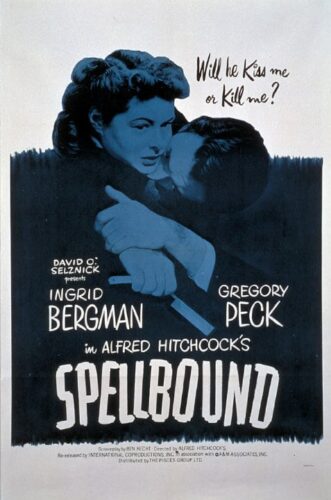
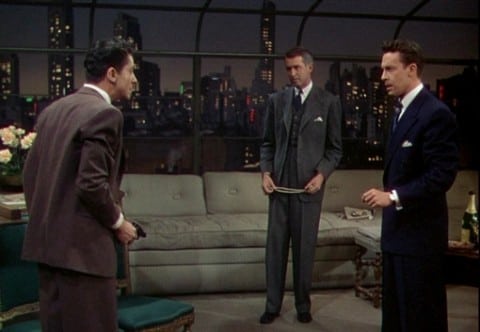
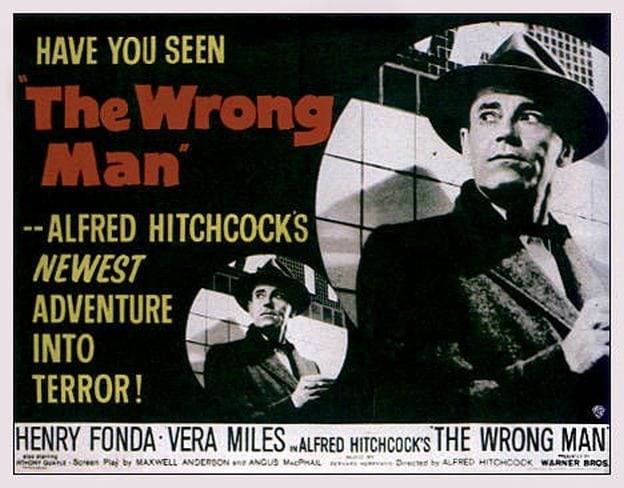
Be the first to comment